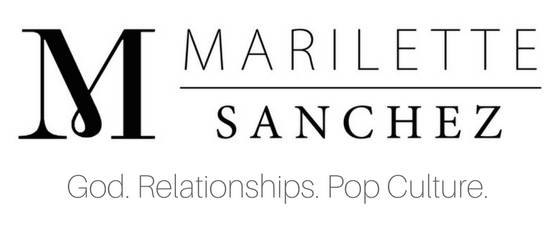Why Justin Bieber Needs Our Prayers, Not Our Gossip
/
When controversial videos of Justin Bieber surfaced recently (with a young teenage Bieber spouting off racial slurs), he once again positioned himself in the glare of the public spotlight.
In a previous post, I wrote: “I’ve always felt a compassion for young celebrities, [who], like all young people, are in the awkward transition into adulthood, no doubt making mistakes in the process. The only difference? Celebrities will make their mistakes in the scrutiny of the public eye.” Unfortunately, we treat celebrities not as mere entertainers, but as entertainment themselves. The public places them under continuous scrutiny, and we “regular people” feel entitled to criticize their every move.
The fame cycle is intriguing: celebrities are worshipped one moment, and then become the object of ridicule the next. They live in a constant Catch-22. Placed on a pedestal, they are unable to do anything wrong. Placed under a microscope, they are unable to do anything right.
A deep prayer of mine is that one day, Christians would come to view celebrities as real people who carry their own share of brokenness. Whenever a fellow Christian makes a critical comment about a celebrity, I flinch. It stings especially coming from the pulpit. Gossip is a sin, whether it’s someone you know personally or not (more about that here). As someone once said: “If you spend time praying for people instead of talking about them, you’ll get better results.”
I first considered working for Cru (formerly Campus Crusade for Christ) full-time upon learning about its founding. Co-founders Bill Bright and his wife Vonette began reaching out to college students at the UCLA campus in the 1950s. Their main demographic was student leaders, especially members of fraternities and sororities. Bill Bright believed that while churches had plenty of ministries serving Skid Row and jails, they lacked existing outreach towards college students and executive leaders. These were the influential leaders of today and tomorrow. No doubt, Jesus cares for the orphans, widows, homeless and the poor. But I don’t think He ever meant to exclude the cultural leaders (Don’t believe me? Brush up on the stories of Nicodemus and The Rich Young Ruler: both powerful, privileged individuals whom Jesus did not turn away).
Besides the video controversy, Bieber has had a rocky year thus far with his January DUI arrest, criminal vandalism (“egging”) charge, and his high-profile on-again, off-again relationship with Selena Gomez. But soon after the controversial videos leaked, Bieber posted an excerpt from Sarah Young’s Jesus Calling devotional book on his Instagram account. Just a few days ago, Bieber and Selena Gomezattended a bible study together.
Someone once said that the Gospel is just one beggar telling another beggar where to find bread for free. Unfortunately, we Christians are quick to point out the sins and shortcomings of celebrities, yet rarely do we take the awareness of celebrities’ flaws as a catalyst to pray for them. Eighteenth-Century Scottish Preacher Oswald Chambers said that “God gives us discernment not so we can judge, but so we can be intercessors.”
Now, don’t get me wrong here. I’m not advocating that we excuse the wrong behavior of celebrities. I simply want to challenge fellow Christians to choose to see past the fame to the brokenness, and as a result, to extend compassion.
Bieber reminds me a lot of David in the Bible. Both are public figures who committed giant mistakes in the public eye. But even after committing adultery and murder, God still chose to use David as a King. In the same way, I believe God still plans to use Bieber in a mighty way in pop culture, not because he is perfect, or the most well-behaved Christian, but because he is a broken human being desperate for God’s grace.
In my own personal life, I’ve been learning that I don’t give hope to others by having it all together. I give hope by being transparent about my flaws, yet being secure in the love and forgiveness that Christ Jesus provides. It has been my prayer for the past several months that Bieber would have a “Gethsemane” experience. As Christian Author Ken Gire says, Gethsemane is “where we go when there’s no place to go but God” (Source). In other words, we usually meet God at rock-bottom.
It’s my deepest desire to see young celebrities like Justin Bieber to arrive at their “Gethsemane” to truly see their need for grace. I would love to see every young celebrity have a similar experience to what Anthony Evans describes in his song “The Way That You Love Me.”
My way, destroying me / I couldn’t see I was my worst enemy / So You took away till my soul ached / And I knew that it was no mistake / Anything that meant anything to me was gone
You love me so much that You let me fall knowing that / I would lose it all and hear Your call / You love me so much that You chase me / When I ran away You captured me / By letting me run to the end of myself /…This is the way, the way that You love me
QUESTION: Would you join me in lifting celebrities up in prayer, to nudge them towards their rock-bottom, and ultimately towards Jesus Christ?
Resources:Intense Moments with the Savior by Ken Gire



























